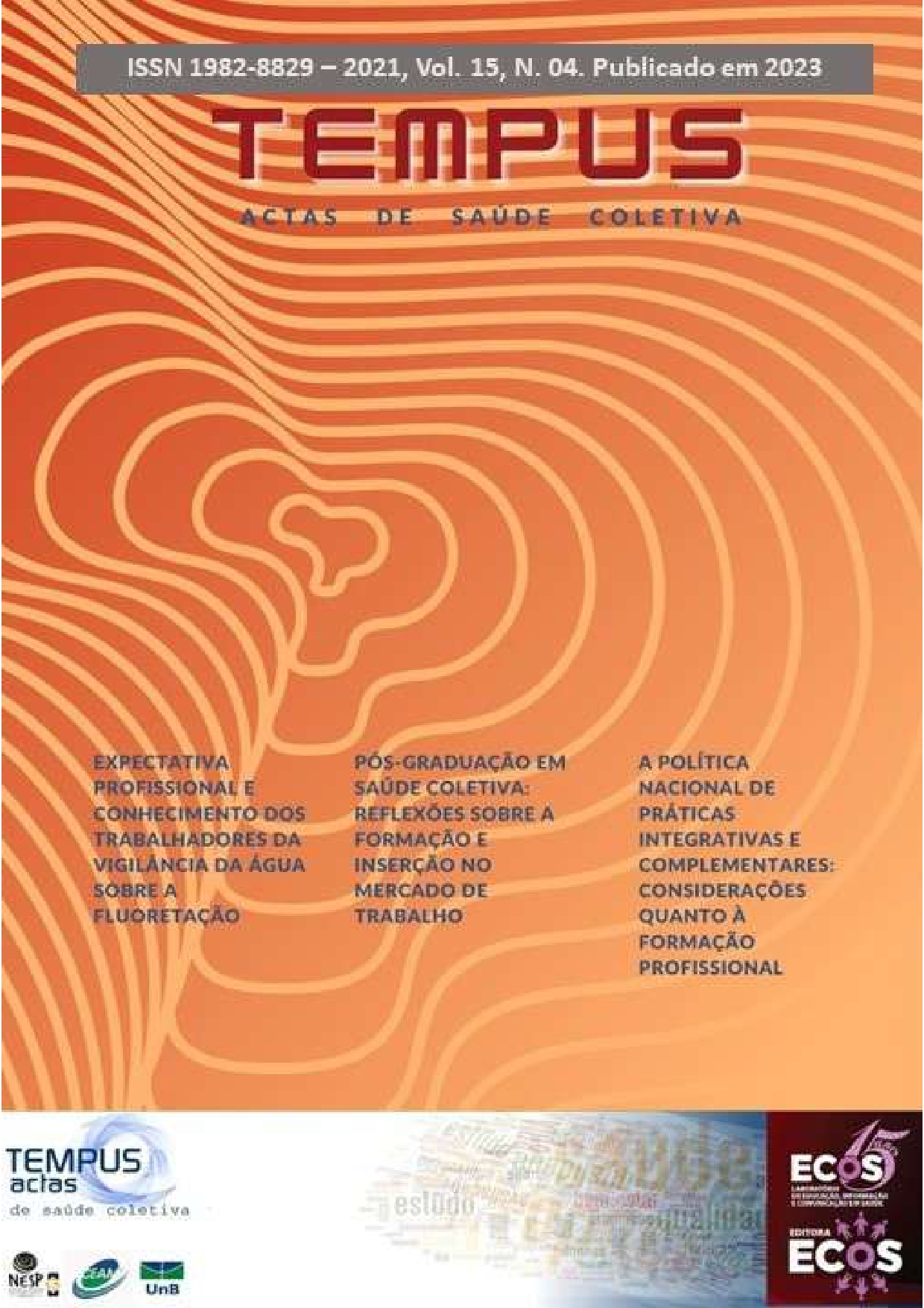Abstract
This study aimed to analyze the perception of resident public health professionals regarding graduation in collective health to work in multidisciplinary teams in Primary Care. The choice of the topic is relevant for academics in the area, since, despite several discussions about this new graduation in public health, there is still a shortage of published material on the performance of these graduates in multidisciplinary teams in Primary Care. The study was qualitative in nature with resident sanitarists who work in Primary Care in the state of Pernambuco, from January to April 2021, through semi-structured interviews. Bardin's content analysis technique was used to analyze the data, which were organized into four analytical categories: skills necessary for the sanitarist to work in primary care; pedagogical contents and strategies in public health graduation that provide subsidies for the work of sanitarists in primary care; weaknesses of graduation in collective health regarding training to work in primary care; suggestions for strengthening the training of health professionals to work in primary care. It is verified that the graduation in collective health allowed a broad knowledge regarding the determinants and conditions of health, territory analysis and the health-disease process. The disciplines, internships and extension projects experienced during graduation provide the basis for the performance of the sanitarist in Primary Care, but it is necessary to review the course's curricular matrix, to strengthen training and better develop activities within the scope of Primary Care.

This work is licensed under a Creative Commons Attribution 4.0 International License.
Copyright (c) 2023 Tempus – Actas de Saúde Coletiva
